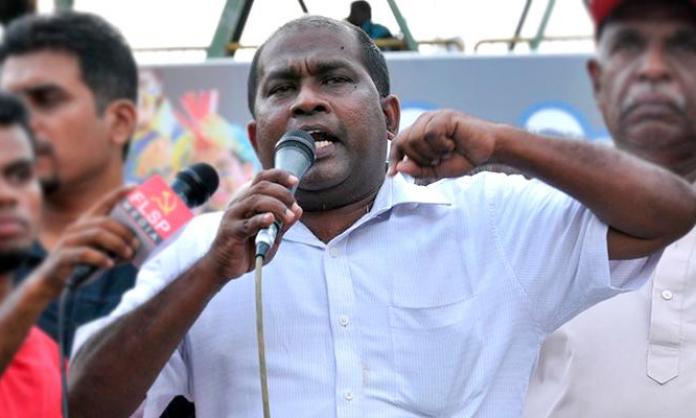Prominent Sri Lankan trade unionist and Ceylon Teachers’ Union General Secretary Joseph Stalin was arrested in his office on 4 August for taking part in a large anti-government protest in May.
Stalin’s arrest is part of a wave of repression by the new Sri Lankan president, Ranil Wickremesinghe, against the movement that toppled Gotabaya Rajapaksa, the country’s previous leader. Leftists, trade unionists and student unionists have been targeted by the new government. Activists have been pulled off planes and buses by plain-clothes police. Others have had arrest warrants issued, and their houses and offices have been raided.
Wickremesinghe’s crackdown rivals the authoritarian legacy of previous governments, notorious for the abduction, intimidation and surveillance of journalists and anti-government activists.
Hours after Gotabaya was forced to flee the country, Wickremesinghe, in a televised address declaring himself acting president, ordered the military to “do whatever is necessary to restore order”. Since being sworn in, he has declared a state of emergency. Protesters continuing to occupy the main protest site, Galle Face Green in the capital, Colombo, were attacked on 22 July by police and soldiers, who demolished their makeshift camp and attacked journalists covering the raid.
Stalin is the most high-profile unionist to be arrested since the crackdown began. It is not the first time he has faced reprisals from the government. The Ceylon Teachers’ Union has a history of standing in solidarity with the oppressed Tamil population in the north-east of the country, and Stalin has previously been arrested for protesting against the militarisation of education.
According to Journalists for Democracy in Sri Lanka, teachers across the island walked out in protest against his arrest, and hundreds of unionists rallied in Colombo demanding his release, along with all the other anti-government activists who have been arrested in recent times.










